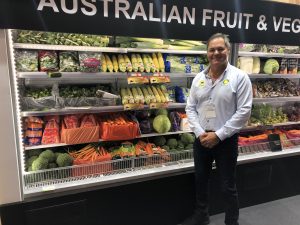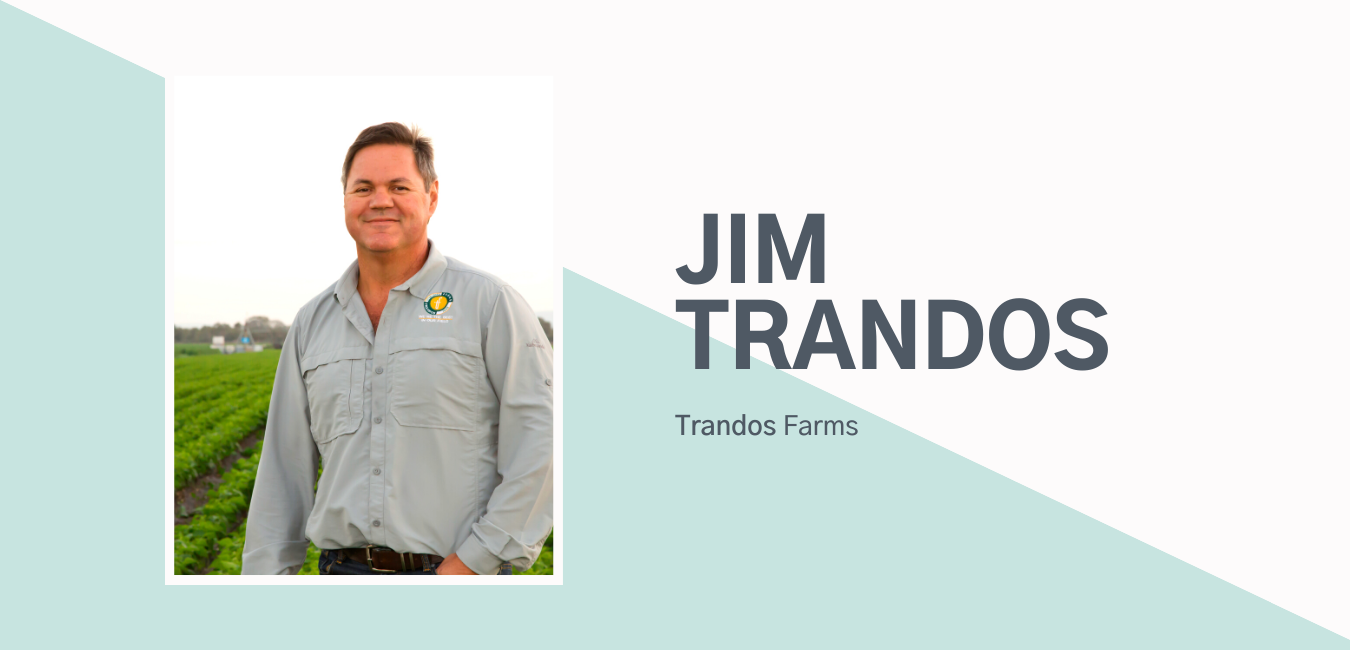Reflecting on past achievements: Jim Trandos
The Syngenta Grower of the Year award recognises outstanding achievement across all aspects of horticultural production, including growing, environmental management, staff management and quality of produce. It also acknowledges grower commitment to innovation and advancing the Australian horticulture industry. In this edition, past winners Peter Schreurs, Jim Trandos, Scott Samwell and Jason Shields chat with Michelle De’Lisle about the award and its significance. The Syngenta Grower of the Year award will feature again in 2021 at the National Awards for Excellence, which will be held at Hort Connections in June.
For over 80 years, the Trandos family has been growing vegetables in Western Australia and today, the operation is the largest producer of sweet corn and beans in the state.
Trandos Farms grows sweet corn and green beans all-year round across four farms – Neerabup, Beermullah and Gingin in summer, while winter crops are grown at Shelamar Station (2,000 kilometres north of Perth). The operation supplies all major supermarkets across Australia and annually exports to five countries, with three countries taking stock on a weekly basis.
Leading the way in the business is Managing Director Jim Trandos. As his position suggests, Jim plays an active role within the Trandos Farms business; although this has changed slightly in the past year as Jim has handed over more responsibility to other team members to concentrate on overseeing and developing new business opportunities.
Jim was rewarded for his dedication to the Australian vegetable industry in 2010 when he took home the Syngenta Grower of the Year award. It was a proud moment not just for him, Jim says, but for his family.
“Winning this award was recognition for all of the work my family has put into the business over the years,” he explains.
“It provided more openings and invitations to be involved with industry committees and boards, which, in turn, helped broaden the scope of knowledge I had access to and could learn from.”
Trandos Farms celebrated 80 years in business in 2019, which Jim says showcases the hard work that has been put in to grow and develop the family business to keep it going for years to come.
Jim’s personal highlight as a vegetable grower has been developing an export market in the United Arab Emirates after being told there was none.
“This then gave me the confidence to expand our export busines – and the international business side of things is what I really enjoy,” he says.
One of the company’s biggest achievements, which was largely driven by Jim’s brother, Arthur, was establishing a successful fresh produce farm in Western Australia’s far-north Kimberley region.
“Having not grown in these climatic conditions before – and growing fresh produce was pretty much unheard of in the region – this was a huge undertaking and risk for the business, but one that has so far paid off,” Jim says.
Pandemic response
Developing and growing a business is not without its challenges, and like many agricultural operations around Australia, Trandos Farms is feeling the effects of the COVID-19 pandemic – particularly the labour shortages due to the lack of seasonal workers. Jim says a resolution needs to be developed.
“COVID-19 has only highlighted how dependent our industry has become on overseas workers. Further to that, robotics and mechanisation is probably the next best thing that needs to be developed, as nothing ground-breaking or innovative has been introduced in the last decade,” he says.
Trandos Farms’ immediate focus is getting through to the other side of the COVID-19 pandemic.
“Managing business relationships both domestically and internationally is where most of our focus is currently invested in,” Jim says.
Despite these ongoing challenges, Jim’s passion for growing vegetables hasn’t wavered.
“The thing that is probably the most satisfying about what I do is the fact that we produce something from beginning to end,” he says.
“We see a tiny seed all the way through to the finished product on the supermarket shelf. I enjoy explaining the intricacy of the process to outsiders, as it isn’t very common for industries to produce something from start to end.”
Jim is keen to see the Trandos name remain in the business for as long as possible.
“We are encouraging family members to become actively involved in the business to continue on the family tradition in farming and keep the business going,” he concludes.


